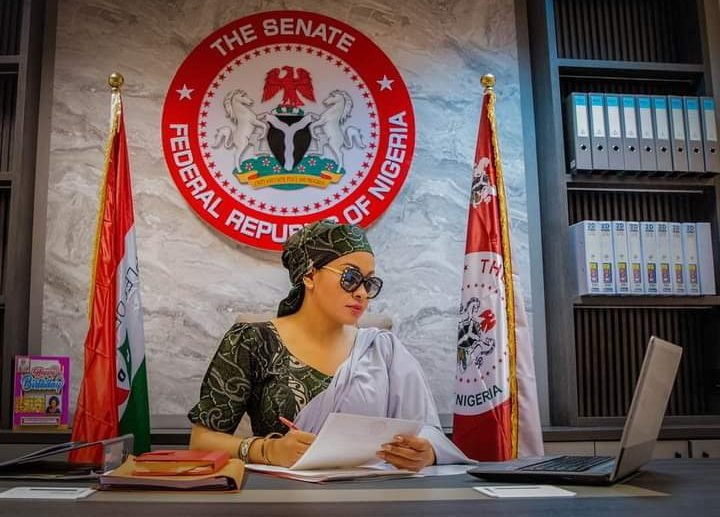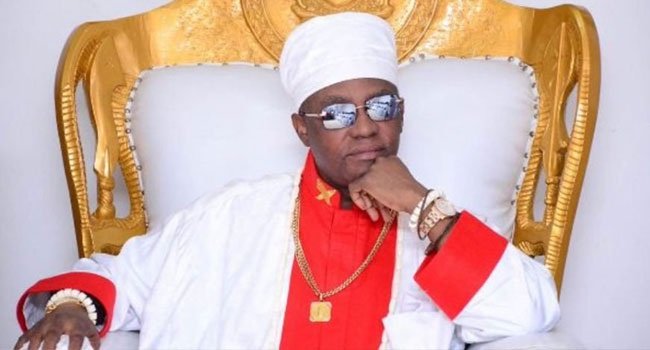September 8, 2025
ABUJA — Senator Natasha Akpoti‑Uduaghan (PDP–Kogi Central) is set to resume her legislative duties at the Nigerian Senate following a brief trip to London, her legal team has confirmed. The planned return comes on the heels of a Federal High Court ruling that declared her six‑month suspension unconstitutional and excessive, reigniting the tug‑of‑war between judicial authority and parliamentary autonomy in Nigeria.
Court Ruling Overrides Suspension
On July 4, 2025, Justice Binta Nyako of the Federal High Court, Abuja, nullified the Senate’s six-month suspension of Akpoti-Uduaghan, characterizing it as a blatant violation of Section 63 of the 1999 Constitution and Senate Standing Orders that limit suspensions to a maximum of 14 days. The decision was a landmark affirmation of both her constitutional right and that of her constituents to representation.
The court’s rebuke was scathing: the suspension was described as “excessive, unconstitutional, and a violation of her constituents’ rights.”
Communication with the Senate
Immediately after the judgment, Akpoti-Uduaghan’s lawyers, M.J. Numa & Partners LLP, formally served the Senate leadership with a Certified True Copy (CTC) of the judgment via a letter dated July 11, 2025. The communication demanded prompt compliance and informed the Senate of her intention to resume duties on Tuesday, July 15, 2025.
However, days before the stated date, Natasha pulled back, opting to await arrival of the Certified True Copy before making her return. The delay was attributed to legal counsel and respect for procedural propriety.
Reacting to this, Senate spokesperson Senator Yemi Adaramodu clarified that the Senate could not reinstate her until it received the CTC and had the opportunity to review it. He further stressed that the court’s ruling, while commendable, did not entail a mandatory directive for immediate reinstatement.
Repeated Attempts to Return Amid Legal Gridlock
Not content to wait, Akpoti‑Uduaghan again notified the Senate—this time scheduling her return for Tuesday, July 22, 2025, insisting that judicial precedent supported her actions, regardless of semantics around “order” versus “decision.”
Her persistence prompted a dramatic showdown: on the appointed day, security operatives physically blocked her access to the Senate complex. Undeterred, she walked the rest of the way in, alongside activists including Aisha Yesufu, denouncing the blockade as unconstitutional and tantamount to lawlessness.
In response, the Senate reaffirmed its position—no valid court order had yet compelled her recall, and it could not accept her participation before expiration of the suspension period or a resolution by the Senate itself.
Journey to London: A Political and Personal Interlude
During these legal and political maneuvers, Senator Akpoti‑Uduaghan travelled to London to attend her stepson’s graduation. The trip itself became contentious when she was briefly detained at Nnamdi Azikiwe International Airport, reportedly placed on a “watch list” at the behest of National Assembly leadership—a move she labeled hostile and unwarranted, given her compliance with all court requirements.
Her absence from the Senate during this period, though, didn’t slow her legislative instincts. She continued to champion constituency projects, including solar-powered streetlights, smart markets, laptop distributions to students, and work on her signature Gold Reserve Bill—all while arguing that her exclusion silenced not just Kogi Central, but female representation in a heavily male-dominated chamber.
Gender, Representation, and the Broader Implications
This saga has broader resonance in Nigeria’s gender equality discourse. Only three women serve in the 109-seat Senate, a decline from eight in 2015, amplifying criticism that her prolonged absence undermines female voice in legislative processes.
Moreover, her allegations of sexual harassment against Senate President Godswill Akpabio—which triggered the suspension—have sparked discussions around power dynamics, institutional bias, and women’s rights in Nigeria’s political arena. The dismissal of her petition on procedural grounds and the subsequent suspension were widely condemned as attempts to stifle dissent and intimidate women in leadership.
Looking Ahead: What’s at Stake?
As Senator Natasha readies her return to Abuja, several unresolved questions loom:
- Will the Senate finally admit her after CTC review? The legal requirement is met; only political will remains.
- Will her presence influence the Senate’s disciplinary framework? The court’s ruling may pressure the Senate to align internal protocols with constitutional boundaries.
- What precedent does this set for political dissent and women in power? Her stand may inspire others but also highlight systemic fragility.
Conclusion
Senator Natasha Akpoti‑Uduaghan’s anticipated return to the Senate after a trip abroad marks a pivotal moment in Nigeria’s democratic evolution. It underscores the enduring tension between judicial oversight and legislative autonomy, the vulnerability of female legislators, and the resilience required to uphold constitutional mandates.
As her lawyer confirms the resumption, attention now shifts to how the Senate will reconcile with both the court’s ruling and the political optics of restoring an elected voice long silenced. In the process, Nigeria may witness a test case for institutional accountability—and the empowerment of its citizens.














